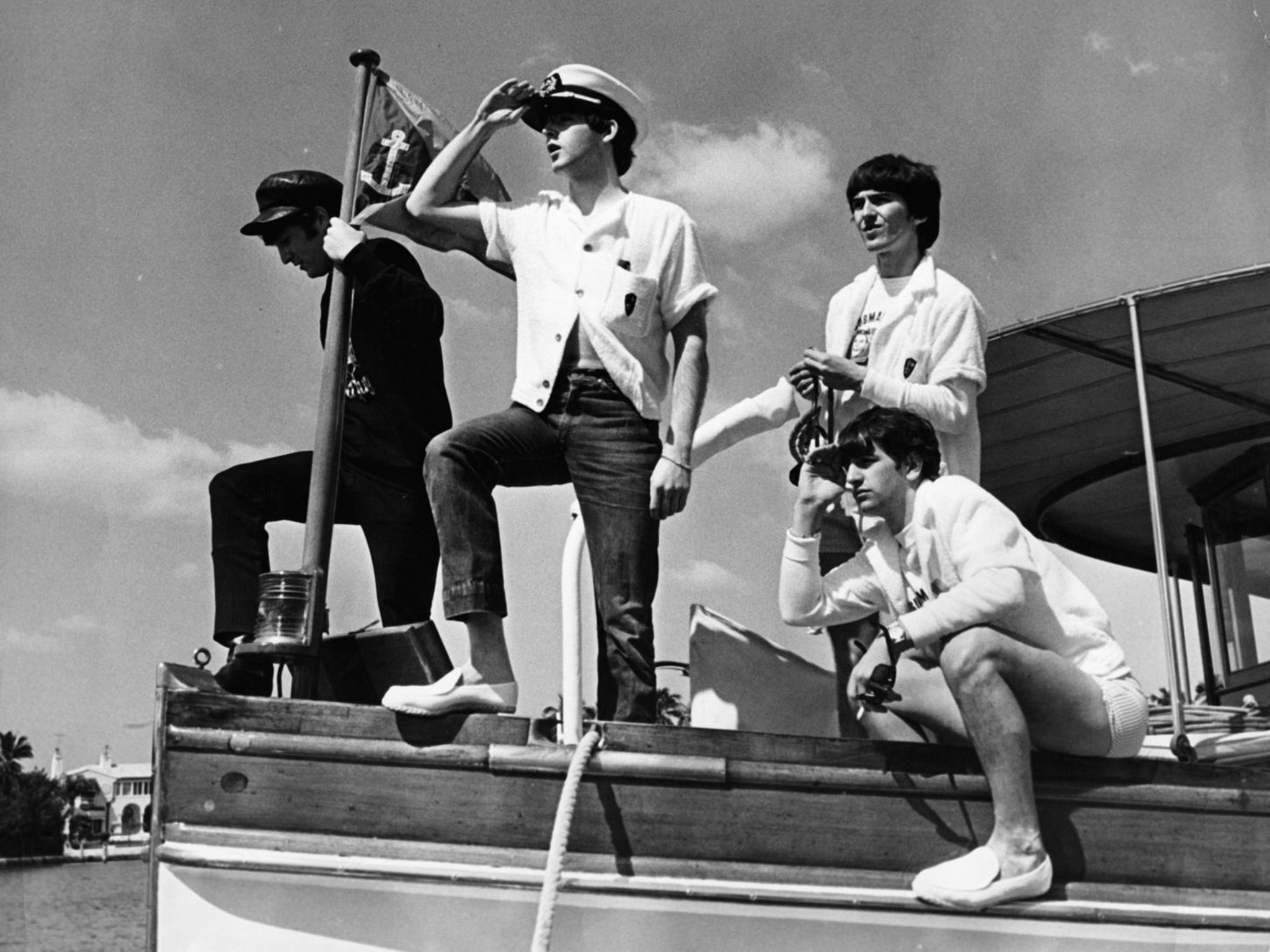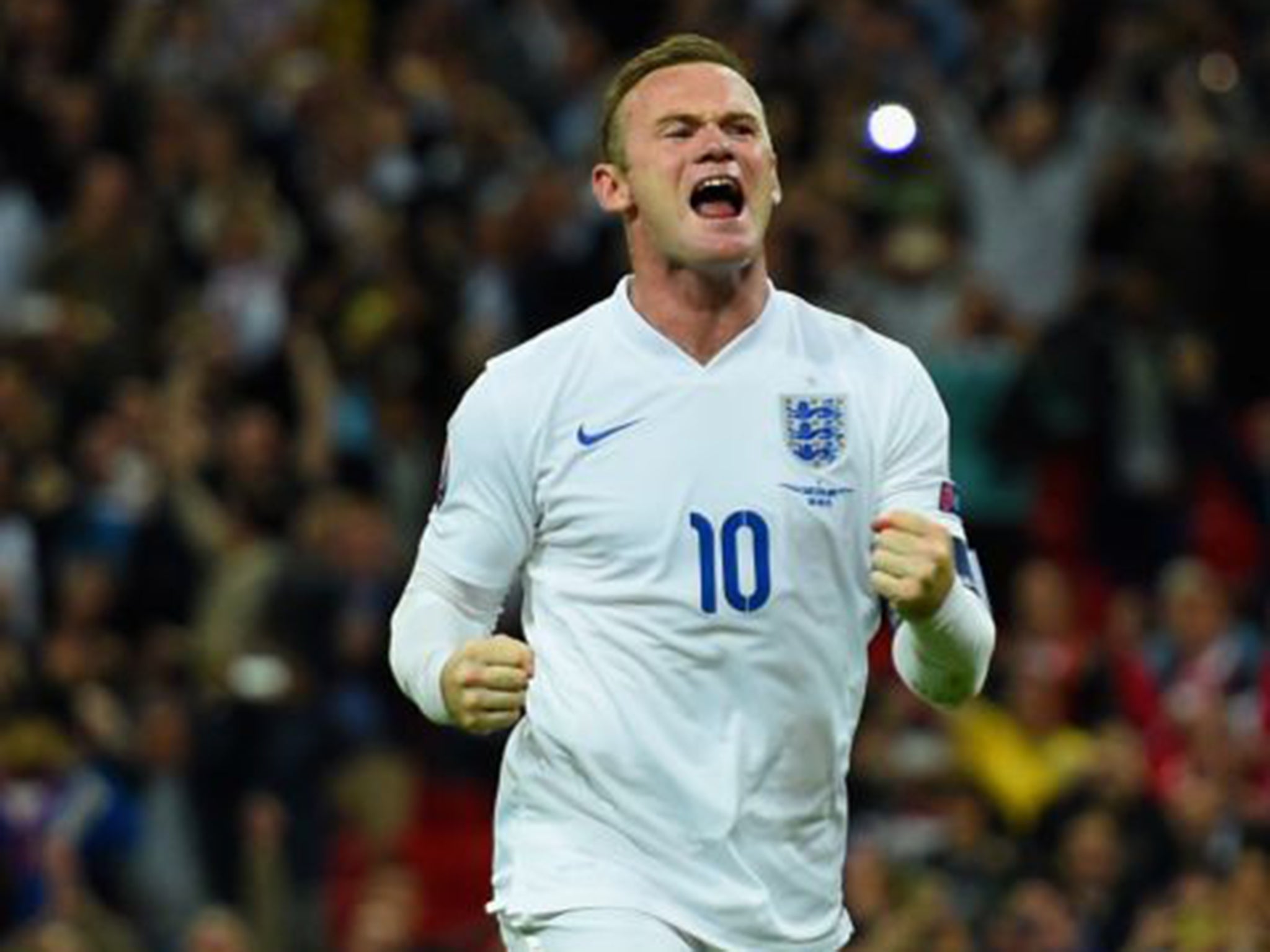From football to the monarchy to the armed forces: Why do us Brits always think we're best?
The facts that we are an island and had a large empire are not enough to explain our exceptionalism

Your support helps us to tell the story
From reproductive rights to climate change to Big Tech, The Independent is on the ground when the story is developing. Whether it's investigating the financials of Elon Musk's pro-Trump PAC or producing our latest documentary, 'The A Word', which shines a light on the American women fighting for reproductive rights, we know how important it is to parse out the facts from the messaging.
At such a critical moment in US history, we need reporters on the ground. Your donation allows us to keep sending journalists to speak to both sides of the story.
The Independent is trusted by Americans across the entire political spectrum. And unlike many other quality news outlets, we choose not to lock Americans out of our reporting and analysis with paywalls. We believe quality journalism should be available to everyone, paid for by those who can afford it.
Your support makes all the difference.From whichever angle you inspected the proceedings, it was a very good week for the English men’s football team. Not only did our heroes – to borrow the vocabulary of the tabloids – qualify for next year’s European tournament with an effortlessness not seen in decades, but Wayne Rooney’s 50th international goal saw off a record held by Sir Bobby Charlton for more than 40 years. Doubtless all manner of alarm bells will be sounded between now and next summer – there will be injuries, calamitous losses of form and savage personal traumas – but no one could say, at this admittedly early stage, that the omens weren’t promising.
Significantly, the aftermath of the victory over Switzerland coincided with some unusually reflective remarks from Martin Glenn, incoming chief executive of the Football Association, a body not generally known for its love of introspective theorising. Addressing the age-old topic of why it is that the cornucopia of talent and pizzazz from which the English team is customarily assembled has a fatal habit of losing on the big occasion, Mr Glenn hesitated to make a scapegoat of foreign imports or Premier League amour propre and focused on less visible fault-lines. One of England’s major weaknesses as a footballing nation, he alleged, was what could only be described as a superiority complex.
Exhibit A in the substantial body of evidence was the fact that its administrators called themselves the Football Association – the implication being that it was the sport’s first governing body, and “the ultimate expression of arrogance”, according to Mr Glenn. Exhibit B was perhaps less tangible but ultimately more injurious still, for it consisted of the widely held impression that England was trying to tell the world how to run the game. “I think we are perceived as arrogant,” he maintained. “I don’t think we necessarily are. But perceptions matter. We are not admired in terms of our international performance.”
As a long-term student of the national game, I think Mr Glenn – who should be congratulated on going public with some deductions that most FA chieftains would prefer to keep to themselves – is on to something here, for the history of English football is pretty much built on the assumption of an innate superiority. And while the 1966 World Cup win over what was then West Germany is usually seen as the authentication of our claim to have taught the world how to play, the seeds of our condescension to many of the other footballing nations were sown a great deal earlier – in the FA’s refusal to take part in the first three World Cups, for example, or in the hubris that, in 1950, allowed us to go out and lose to such footballing nonentities as the US.
Naturally, Mr Glenn, as a football administrator, confined his complaints to sport. But he could easily have gone further, extrapolated from the particular to the general and hinted that the superiority complex which apparently blights England’s prospects in soccer tournaments is a national characteristic, and one that colours attitudes to “Englishness” or “Britishness” in far more significant arenas than sport. The Prime Minister’s attitude towards Europe, from his pick-and-mix stance on pan-European legislation to his unilateralist position on the refugee crisis is, it might be argued, an example of this tendency, calculated to leave anyone he comes up against in a Brussels committee room with the suspicion that, to cannibalise George Orwell’s famous phrase, all animals are equal but British animals are somehow more equal than others.

If we can accept that the British tend to have an unusually high opinion of themselves, then it is worth asking where the roots of this self-fixation grew and prospered. The standard view is that this is a late-imperial phenomenon and that the extraordinary growth in material and military power that occurred during the 19th century, cunningly propagandised by our rulers, had an almost spiritual effect on the sensibilities of the great mass of people toiling below. R F Delderfield, that staple of the post-war library shelves, once wrote a best-selling novel entitled God is an Englishman (1970), one of those sprawling Victorian panoramas in which top-hatted industrialists are cheerfully plundering the proletariat while 12-year-old girls are herded off to the child brothels but nearly everyone involved is somehow mesmerised by the potency of the ever-expanding landscape of which they are providentially a part.
However ironically conceived, Delderfield’s title conveys some of the assumptions on which a great deal of lower-level life was lived in the early 20th century; assumptions that, on the one hand, placed Great Britain at the apex of a pile of inferior nations and, on the other, involved patronising or sometimes merely despising them from one year to the next. When my grandfather, a veteran of the Boer War and the First World War, died in 1951, my grandmother is supposed to have uttered the three words “He was British”. Imagine an inhabitant of the Dordogne pronouncing “Il était français” over a departed spouse! No, it takes someone steeped in centuries of British history, subconsciously alert to the implications of otherness, separation and severance to make this kind of imaginative leap.
In much the same way, my father, a veteran of the Second World War, really did believe, or affect to believe, that three British soldiers armed with a Bren gun could see off several hundred Italians. It was simply a question of upbringing, and of millions of other upbringings, whose legacy is responsible for the Farage tendency in modern British politics – the idea, usually expressed in more cautious language, that foreigners need watching, Britain’s affairs are best left to the British and one of the UK’s most attractive features is the water that surrounds it.
Naturally, this sense of superiority extends far beyond presumptions of military, political or even sporting heroics. It can be glimpsed in literature, where the “English novel”, it might be argued, possesses an abstract glory far exceeding its actual merits, and it can be seen in popular music – an almost entirely home-grown phenomenon, according to certain readings, which takes its cue from the Beatles and the other inhabitants of mid-Sixties Tin Pan Alley, with only a very small space for the black American musicians from which this tradition derived. There were, inevitably, echoes of it in last week’s coverage of the record-breaking reign notched up by Her Majesty the Queen. Even when it comes to heads of state, the unspoken assumption ran, we do things better.
And no doubt there is something to be said for a system that gives us Elizabeth II rather than a dictator in a peaked hat or the oligarchs of Moscow. As for the future of our national superiority complex, optimists occasionally suggest that cultural diversity will eventually see the end of this partiality. All the evidence, alas, suggests that if there is one thing Britain is good at it is perpetuating the belief in its own exceptionalism. Evelyn Waugh’s novel Brideshead Revisited, for example, contains a wonderful scene in which Charles Ryder, in search of his dissipated friend Sebastian Flyte in 1920s Casablanca, is escorted to the latter’s house by a native porter. “Very dirty peoples,” the porter complains of his fellow citizens, as they trek through the thronged Moroccan alleys. “No education. French leave them dirty. Not like British peoples. My peoples always very British peoples.” No Victorian propagandist for our right little, tight little, Dreadnought-defended and thoroughly exceptional island could have put it better. And no England football fan, either.
Join our commenting forum
Join thought-provoking conversations, follow other Independent readers and see their replies
Comments